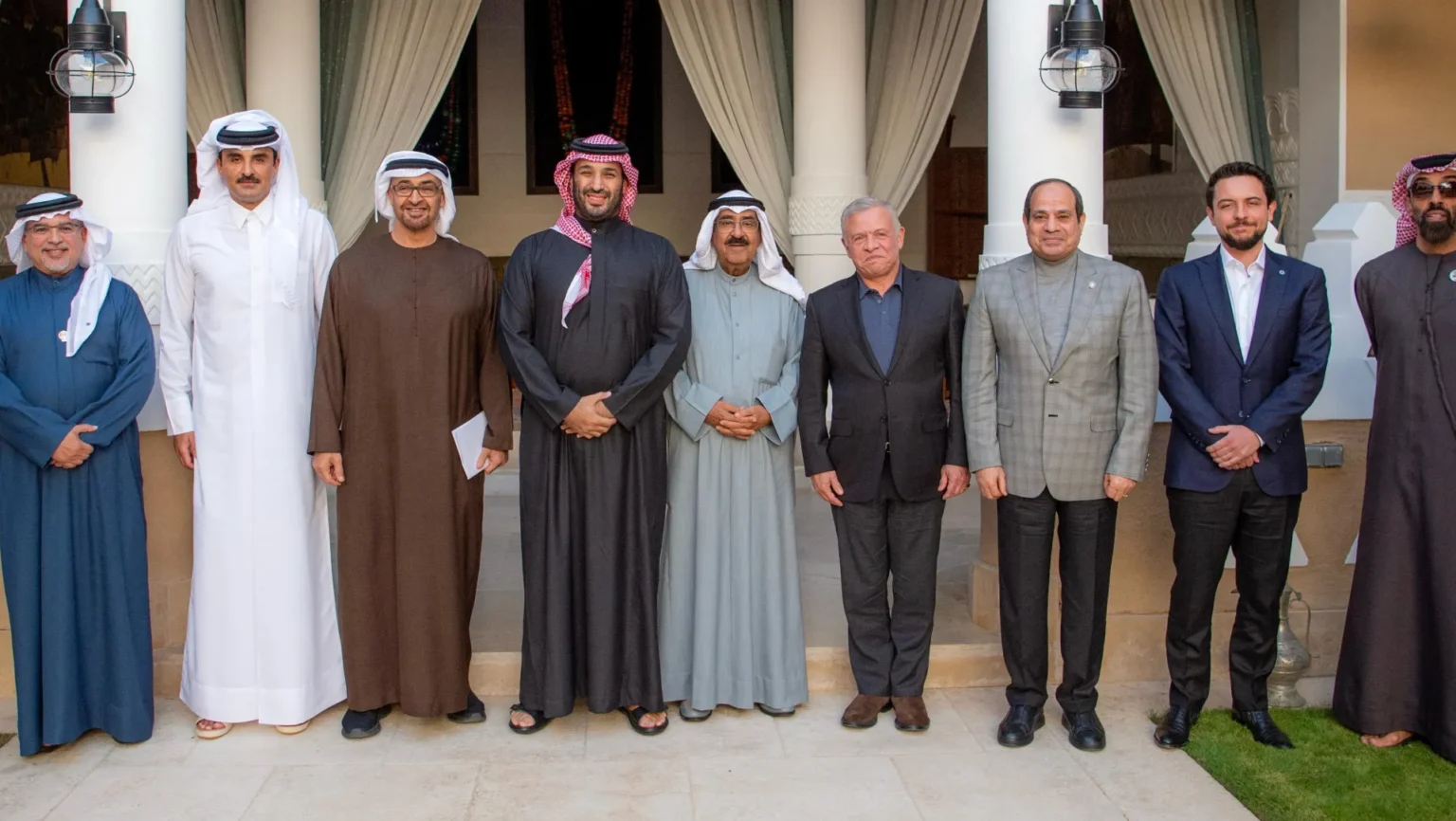In a significant geopolitical development, Arab nations have collectively denounced U.S. President Donald Trump’s recent proposal to take control of the Gaza Strip, resettle its Palestinian inhabitants elsewhere, and transform the area into a commercial hub dubbed the “Riviera of the Middle East.” This plan has been met with widespread condemnation from key Middle Eastern countries, who view it as a threat to regional stability and an affront to Palestinian sovereignty.
Saudi Arabia’s Firm Stance
Leading the opposition, Saudi Arabia has unequivocally rejected any notion of normalizing relations with Israel in the absence of an independent Palestinian state. The Saudi Ministry of Foreign Affairs issued a statement emphasizing that the establishment of a Palestinian state is a “firm, unwavering position” and “non-negotiable.” Crown Prince Mohammed bin Salman reinforced this stance, asserting that the kingdom remains committed to tirelessly working towards the creation of a sovereign Palestinian nation with East Jerusalem as its capital.
Regional Repercussions and Arab Unity
The proposal has prompted a rare display of unity among Arab nations. Egypt, Jordan, Saudi Arabia, the United Arab Emirates, Qatar, the Palestinian Authority, and the Arab League convened in Cairo to collectively denounce any plans to relocate Palestinians from Gaza and the West Bank. In a joint statement, they warned that such initiatives “threaten the region’s stability, risk expanding the conflict, and undermine prospects for peace and coexistence among its peoples.”
Egyptian President Abdel Fattah el-Sissi and Jordan’s Foreign Minister Ayman Safadi have both expressed firm opposition to the resettlement idea. El-Sissi emphasized that transferring Palestinians “can’t ever be tolerated or allowed,” while Safadi described Jordan’s stance as “firm and unwavering.”
Challenges to U.S. Diplomacy
President Trump’s proposal has not only strained relations with Arab allies but also disrupted longstanding U.S. diplomatic efforts centered around a two-state solution. The plan’s suggestion of relocating Gaza’s population has been criticized as potentially constituting ethnic cleansing and a war crime.
The controversy has also cast a shadow over potential normalization agreements between Israel and Arab nations. Saudi Arabia, in particular, has made it clear that any such agreement is contingent upon the establishment of a Palestinian state. A spokesperson for the Saudi Foreign Ministry stated, “Achieving lasting and just peace is impossible without the Palestinian people obtaining their legitimate rights.”
Financial and Governance Concerns
Arab leaders are now faced with the daunting task of formulating an alternative plan for Gaza’s reconstruction and governance. The estimated $50 billion required for rebuilding efforts presents a significant financial challenge. Additionally, questions regarding who would govern the region post-reconstruction remain unresolved. Egypt has expressed concerns about Hamas posing a security threat, while Jordan fears potential regional instability resulting from the proposed population displacement.
International Implications
The international community is closely monitoring the situation, as the proposed plan could have far-reaching consequences beyond the Middle East. The displacement of Palestinians and the potential annexation of Gaza by external powers could set a concerning precedent in international relations and human rights.
In response to the backlash, President Trump has indicated that he will not impose the controversial Gaza redevelopment plan, acknowledging the negative reception from key regional players such as Egypt and Jordan.
Conclusion
The unified stance of Arab nations against President Trump’s Gaza proposal underscores the complexities of Middle Eastern geopolitics and the enduring sensitivity surrounding Palestinian statehood. As regional leaders continue to advocate for a two-state solution, the path to lasting peace remains fraught with challenges, necessitating nuanced diplomacy and a steadfast commitment to the rights and aspirations of the Palestinian people
Do follow gulf magazine on Instagram
for more information click here



